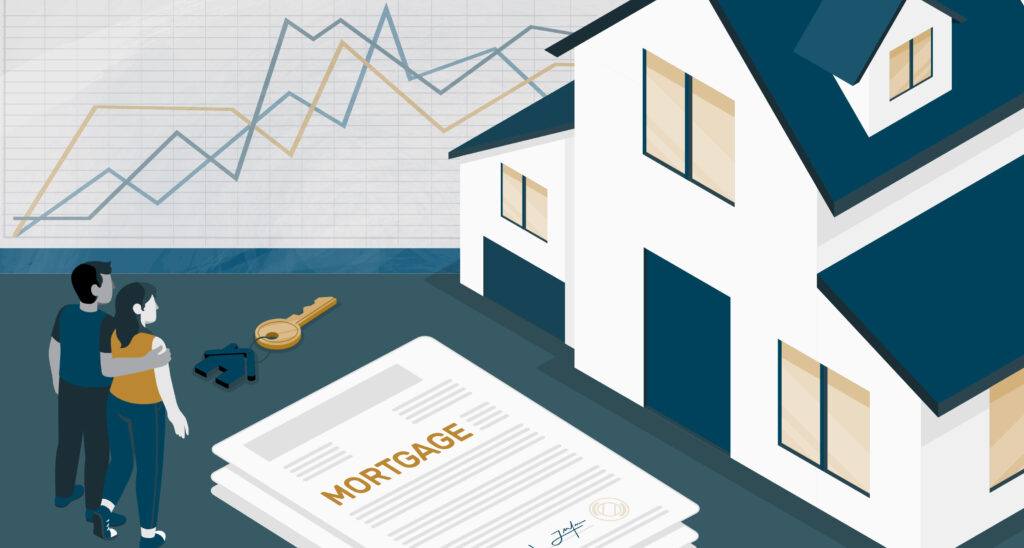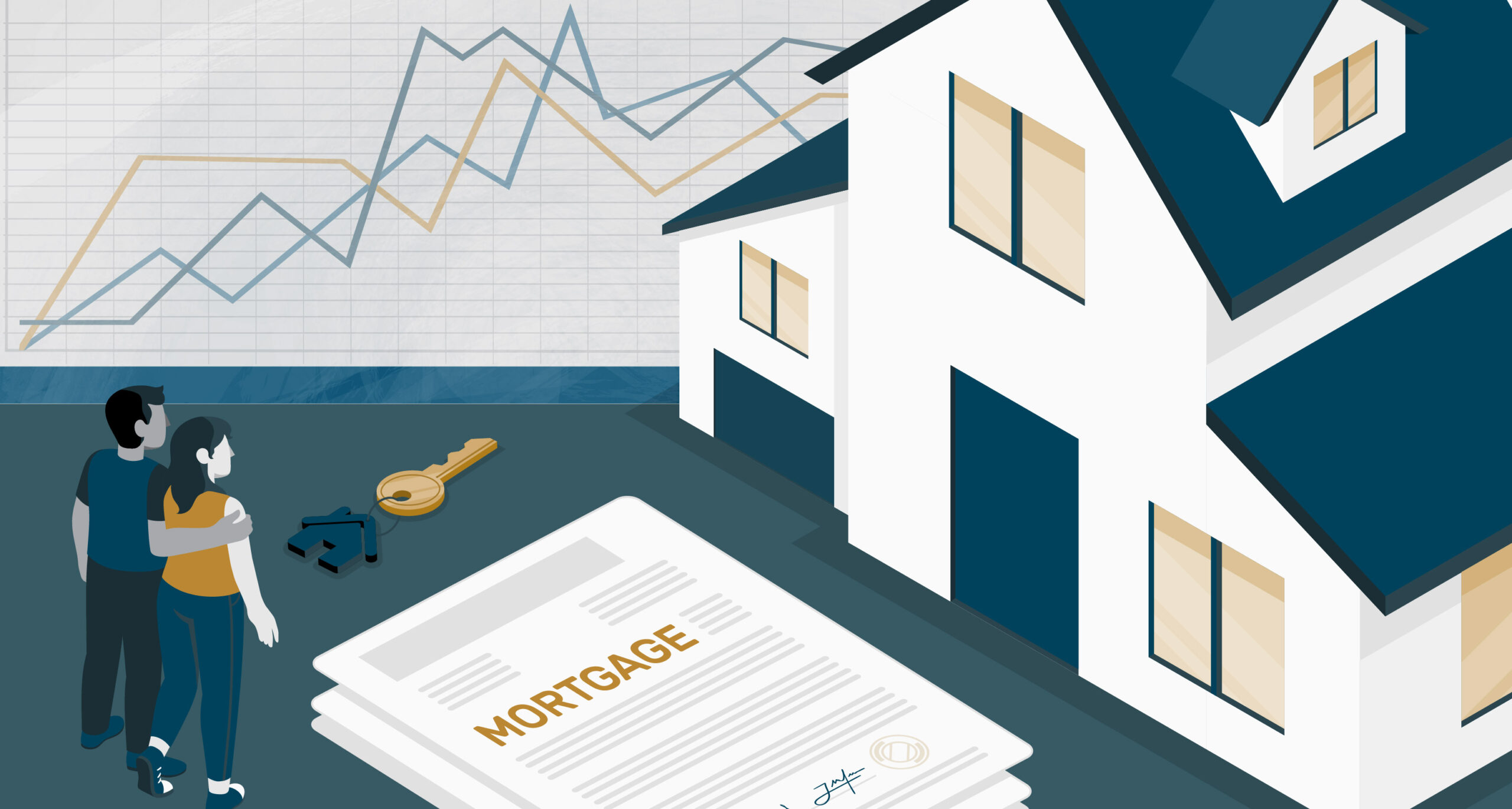A mortgage is often the largest financial commitment individuals make in their lifetime. As a significant part of personal finance, it can have both positive and negative effects on an individual’s financial health. Understanding the implications of taking out a mortgage is crucial for anyone looking to buy a home, as it affects various aspects of personal finances, from budgeting and savings to long-term wealth accumulation and credit scores.

What is a Mortgage?
A mortgage is a loan taken to purchase real estate, typically a home, where the property itself serves as collateral. Most people take out a mortgage because they are unable to afford the full price of a home upfront. Mortgages generally come with fixed or variable interest rates and are paid back over a long period, usually 15 to 30 years. As the borrower makes payments, the balance on the loan decreases, and ownership of the property is transferred from the lender back to the borrower.
The Positive Impact of Mortgages
- Homeownership and Wealth Building
One of the primary benefits of having a mortgage is the ability to own a home, a major milestone in many people’s lives. While paying rent often feels like money down the drain, a mortgage payment builds equity in a home, meaning that the borrower owns a portion of the property after each payment. Over time, this equity can accumulate as the property appreciates in value, providing an opportunity for wealth creation.
Unlike renting, where monthly payments contribute to nothing other than the landlord’s profit, mortgage payments, in essence, are investments in the property. The longer one stays in a home and the more mortgage payments they make, the more equity they build, which can be leveraged for future financial decisions such as selling the house or borrowing against its value for other purposes.
- Tax Benefits
In some countries, mortgage holders benefit from tax deductions. For example, in the United States, homeowners can deduct the interest they pay on their mortgage from their taxable income. This can lead to significant tax savings, especially during the earlier years of the mortgage when a larger portion of the monthly payment goes toward interest rather than the principal. These savings can free up money for other investments, helping individuals manage their finances more effectively.
- Forced Savings
Unlike renting, where the payment amount can fluctuate and is paid to a landlord, a mortgage is a structured, predictable expense. This predictability can help individuals budget more effectively, providing stability in financial planning. Additionally, because mortgage payments build equity, homeowners are essentially putting their money into a savings plan, even if they aren’t directly managing a separate savings account. This forced savings mechanism often helps individuals accumulate wealth over time, which might not happen if they were renting.
The Negative Impact of Mortgages
- Debt and Financial Strain
While a mortgage can be a vehicle for wealth creation, it also represents significant debt. The monthly payments, especially on a 30-year loan, can be large, consuming a substantial portion of an individual’s monthly income. This can cause financial strain, particularly if unexpected expenses arise or if income decreases due to job loss or illness. For many homeowners, the burden of mortgage payments takes precedence over other financial goals, including saving for retirement or building an emergency fund.
Additionally, homeowners can find themselves “house poor,” meaning they have little disposable income after paying for their mortgage, utilities, and other living expenses. This can limit their ability to participate in leisure activities or make long-term investments.
- Interest and Long-Term Costs
A mortgage typically involves interest payments, which can add up to a significant sum over the life of the loan. Depending on the interest rate and the length of the mortgage, individuals may end up paying several times the original amount they borrowed in interest alone. For instance, on a 30-year fixed mortgage, the total interest paid can be much higher than on a shorter-term loan, even though the monthly payments are lower.
While a mortgage allows homeowners to purchase a home without having to pay for it in full upfront, it can also result in a long-term financial commitment. The longer the repayment period, the more the individual will pay in total, especially when interest rates are high. This can negatively impact personal finances, as borrowers are essentially paying for the home twice — once with their principal payments and again through interest.
- Impact on Credit Score and Financial Flexibility
Taking out a mortgage affects an individual’s credit score. While making consistent mortgage payments can have a positive effect on credit history, missing payments or defaulting on the loan can cause severe damage. A lower credit score can make it difficult to obtain other forms of credit in the future, such as car loans or credit cards, and can result in higher interest rates on new loans.
Moreover, having a large mortgage can affect an individual’s ability to take on additional debt. Lenders assess an individual’s debt-to-income (DTI) ratio when evaluating their eligibility for new credit. A high DTI, caused by substantial mortgage payments, can limit a borrower’s financial flexibility, making it harder to access credit for emergencies, investment opportunities, or other significant expenses.
- Risk of Foreclosure
If homeowners fail to make their mortgage payments, they risk foreclosure — a legal process where the lender takes ownership of the property. Foreclosure is not only financially devastating but can also have a lasting impact on credit scores, making it difficult for the individual to secure loans or credit in the future. Foreclosure also means losing the home and the equity built over the years, which can significantly set back personal financial goals.
Conclusion
Mortgages are a double-edged sword when it comes to personal finances. On one hand, they provide an opportunity for homeownership, wealth building, tax savings, and forced savings. On the other hand, they come with risks, including long-term debt, financial strain, high interest costs, and the potential for foreclosure. The impact of a mortgage on personal finances depends largely on how well the borrower manages the loan. By budgeting wisely, planning for potential financial setbacks, and paying down debt as quickly as possible, homeowners can minimize the negative effects of their mortgage and ultimately use it as a tool for long-term financial success. It is crucial to weigh the pros and cons carefully before taking on such a substantial financial commitment, ensuring that the mortgage is a positive addition to one’s overall financial plan.
